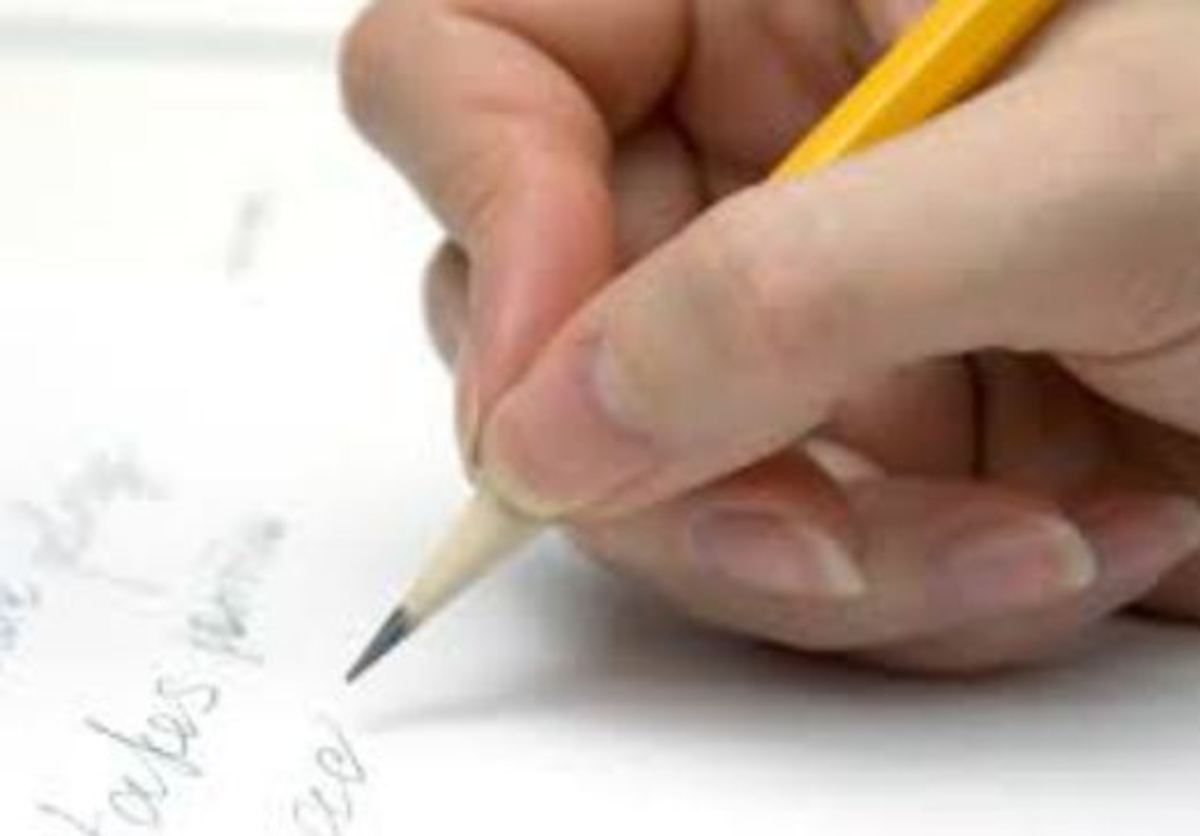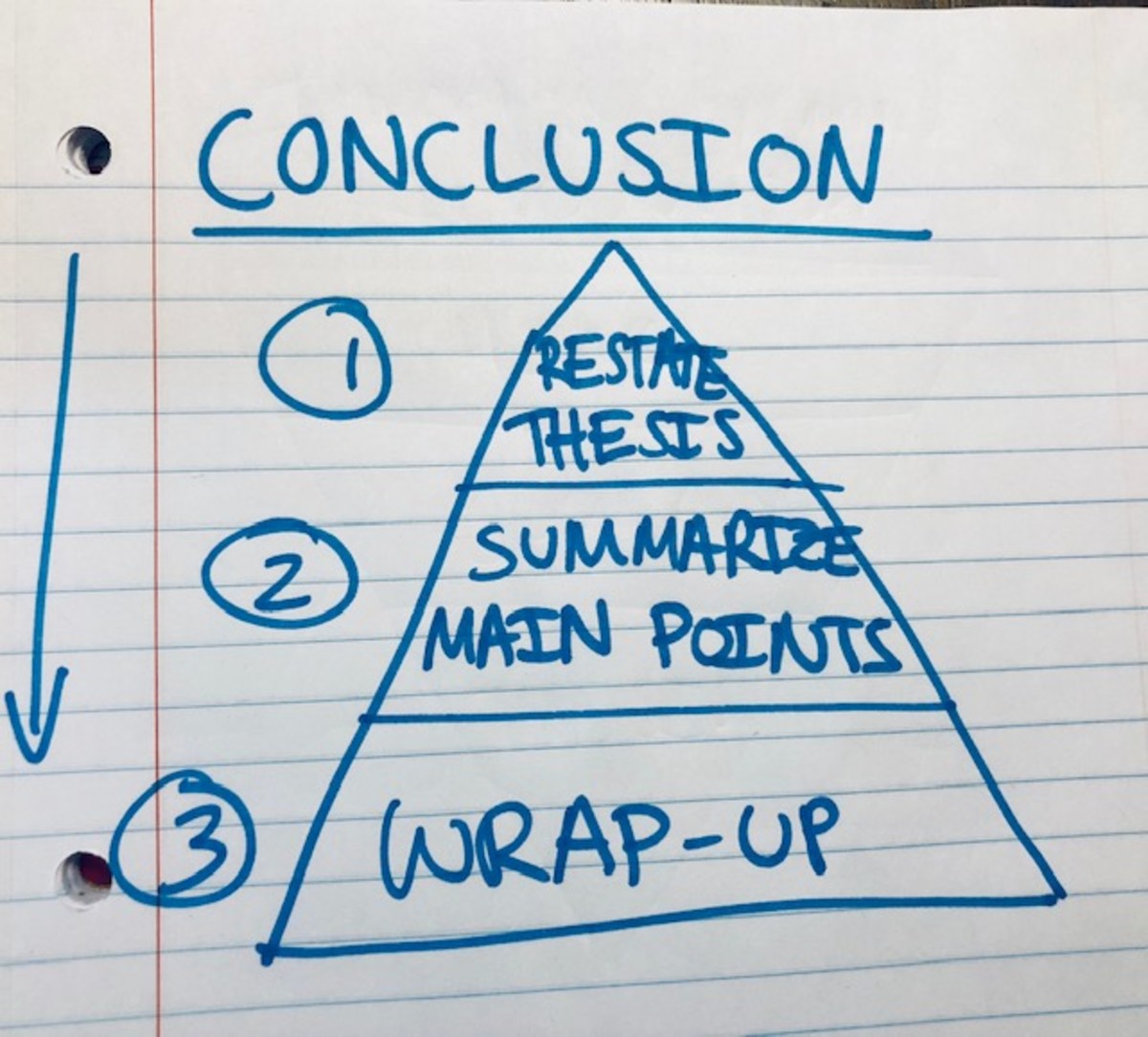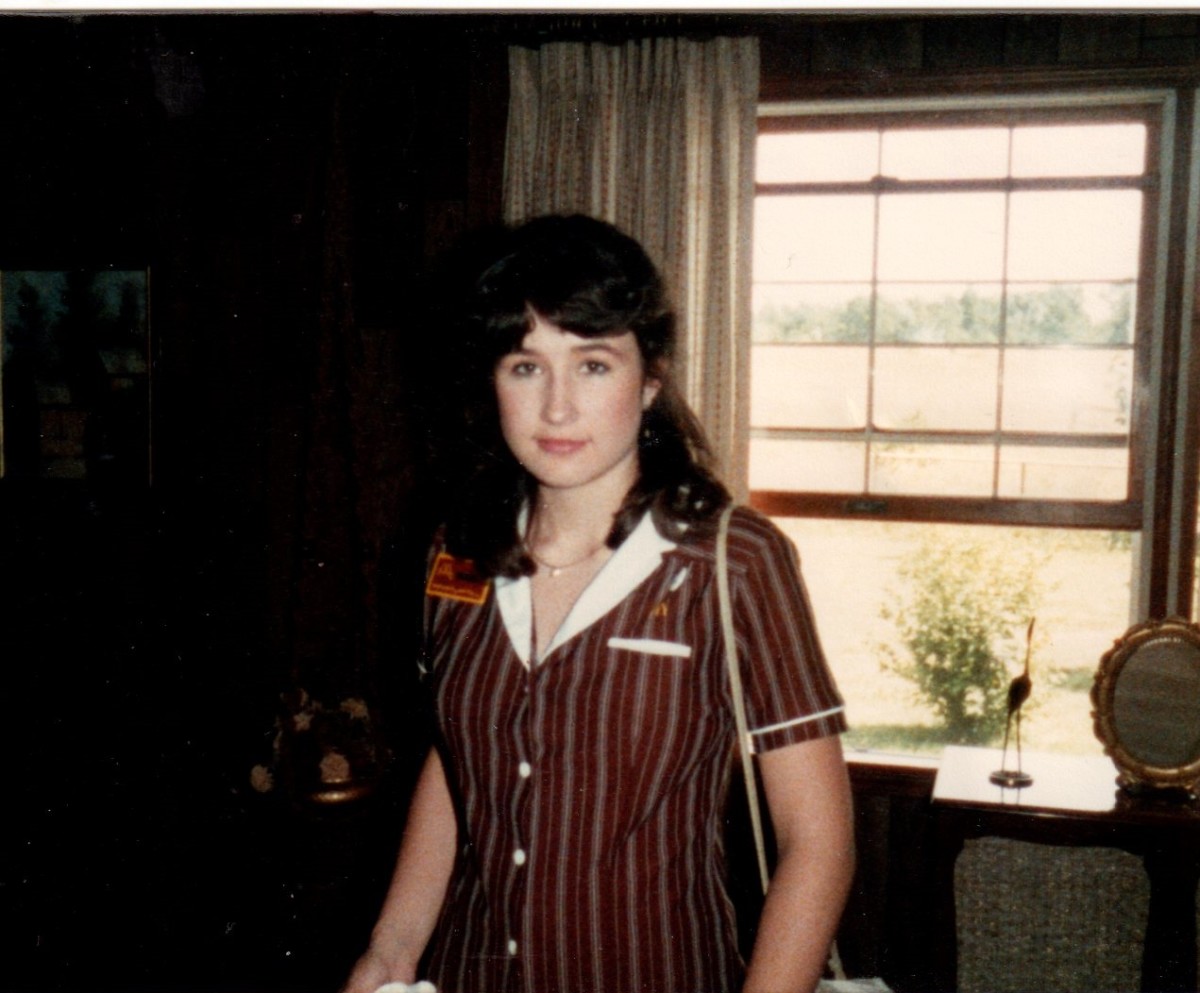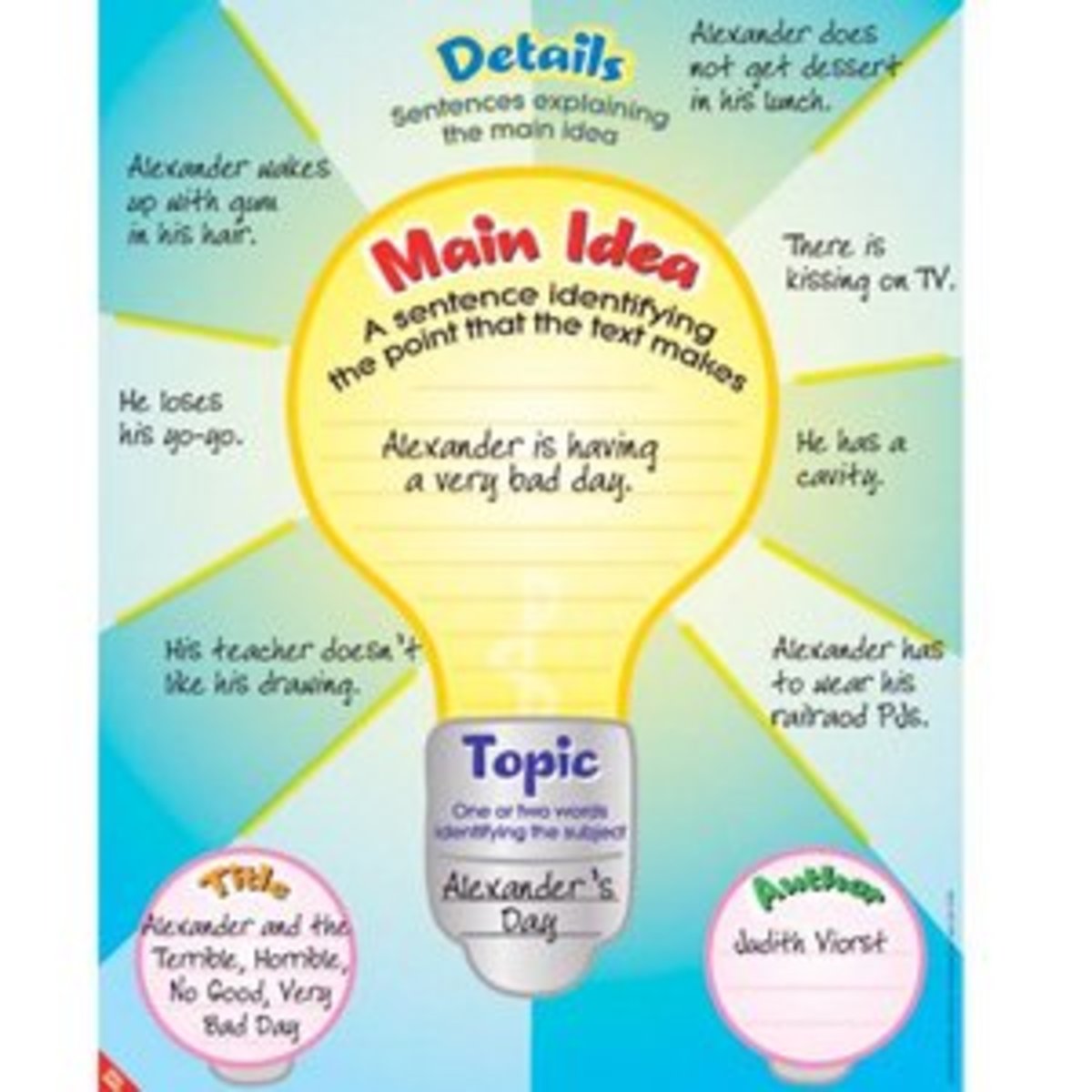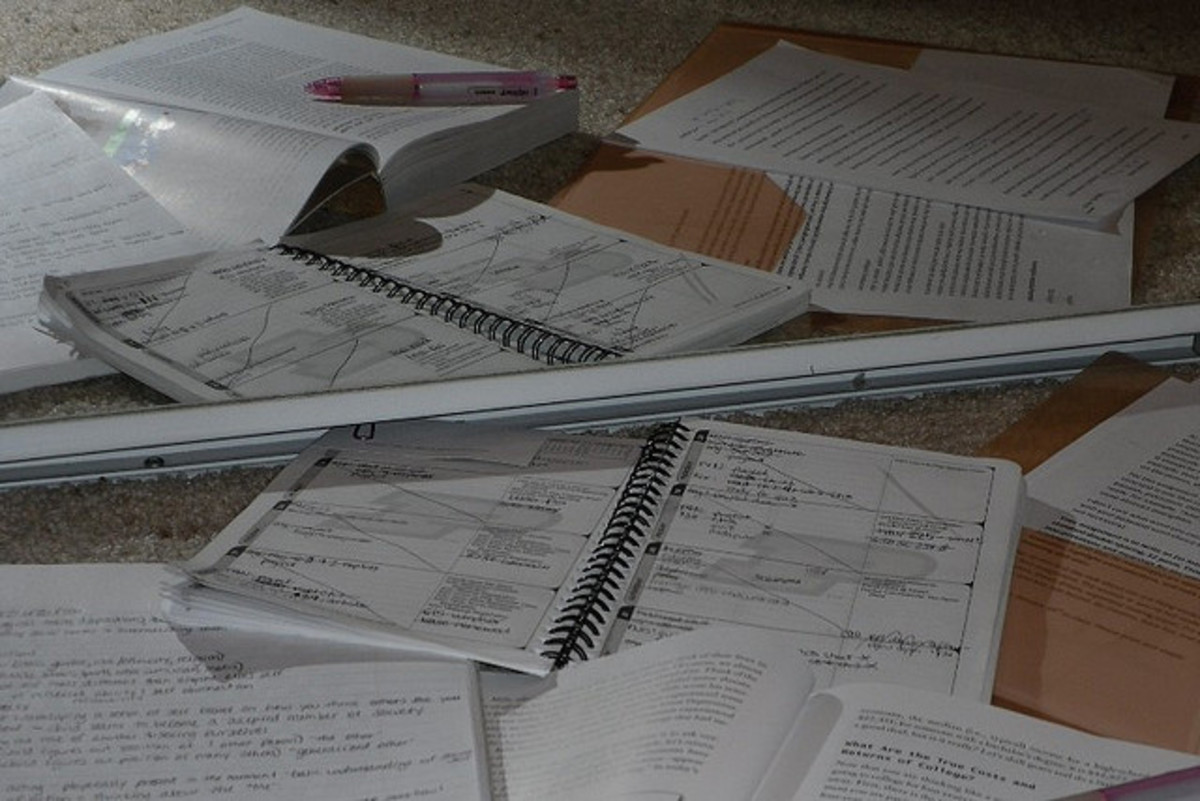Help! English Essays Made Simple
A Little About Me
You may be wondering what qualifies me to be talking about this... well... here it is:
I graduated from Austin Peay State University with a Bachelor's Degree in English with a minor in Education. Not only did I study the many areas of English including all kinds of writing and literature, but I also studied how to grade these types of things. I have taken many course in professional, research-based, creative, and expository writing. In addition, my education courses allowed me to learn what to look for in good essays, and how to determine if work meets specific criteria.
I have a huge passion for reading, writing, and teaching, and I try to take any and every opportunity to share it. Enjoy!
If I speak English, why is English so hard?
There are millions of different possibilities when you write an essay for any given class. That's what makes it so hard! There are just too many ways to go wrong! But, if you follow some simple guidelines, you can be sure to get a good grade:
1. Read or take notes on ALL instructions given by the teacher. Sometimes forgetting one required element to the essay can drop your grade from an A to a C!
2. Outline! Prepare! Don't just sit down to write a complete essay all in one go. Try to get an idea of what you want to write about and what kind of message you want to convey before you begin. Also, getting organized and planning how your essay will be structured can make the writing process much easier!
3. Don't be lazy. Write more than one draft. Too often, students want to take the quickest path to the end, so they only pass over the assignment once. This is a huge mistake. You need to get in the mindset that your first draft is not the final draft, and changes are going to be made.
4. Proofread! One of the best strategies in proofreading is to print out the paper and read it aloud (even to just yourself). You would be amazed at how easy it is to find mistakes and awkward sentences with this strategy.
5. Don't be afraid to ask for help. You can ask for your teacher's help, which can be the most beneficial since the are the one who assigned the essay, and, therefore, know what they are looking for. You can also find help all over the internet. In fact, there is an excellent site where you can ask for help and receive a quality service.
Check it out at: www.Fiverr.com/sconstantino
The Introduction Sets the Stage
Be sure to start off with a strong first sentence. That is what grabs a reader's attention. Just because you are submitting an academic paper does not mean you don't want your teacher to be intrigued by what you are saying. Try starting off with something a relevant quote or a startling statistic. Interesting stories (they must be short enough to fit into your introductory paragraph) can also be an interesting way to start an essay.Try to avoid asking questions, though. In academic writing, your tone should be fairly professional, and you should never address the reader.
Your Thesis
This is, perhaps, the most important sentence in your entire paper. It tells the reader exactly what your paper is about and says what stance you are taking.
Developing a good thesis:
- Summarize your main point- Keep in mind that, if you cannot summarize your main point in this sentence, your topic may be too broad or varied. Consider revising your essay to go deeper into a single topic rather than touch lightly on many topics.
- Provide organization- If your thesis reads something to the effect of "A certain topic includes topic 1, topic 2, and topic 3," then be sure to present the ideas in your essay in THAT ORDER. If you are discussing an event, be sure to present things chronologically.
- Wait until the end- Often, as we write an essay, our main ideas may stray from the original thesis that we had in mind. Don't be afraid to write your entire paper first, and then go back and write the introductory paragraph last. Often, this process can make writing the first paragraph much easier.
- Provide an argument- your thesis, more often than not, should provide a topic or conclusion that someone else could argue with. For example, a bad thesis statement would be "The industrial revolution was a big part of history." A way to make it argumentative would be to say "The industrial revolution was one of the greatest contributors to the history of the modern world."
Do Not:
- Avoid certain phrases- "I will present," "this paper is about," "Here, I will discuss," and other similar phrases kill your thesis statement before they are ever finished. Do not use personal pronouns.
- Don't be negative- Instead of claiming that someone didn't do something, talk about something they did do, or some effect that an event DID have on a topic. You will be able to write a much better paper about something that you can prove rather than something you are trying to prove didn't happen.
- Using a passive voice- Active versus passive voice has to do with the ways that the noun and verb placement in a sentence. Active voice would be "Andy won the game." Passive voice would be "The game was won by Andy." Try to always use active voice.
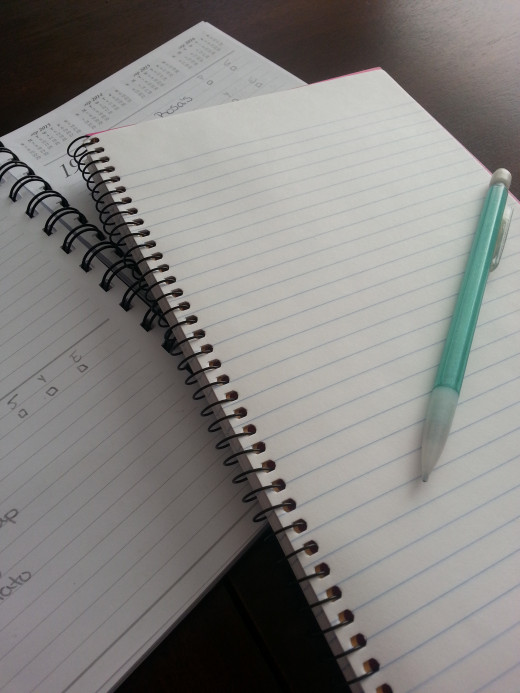
Your Conclusion
Tips for a successful conclusion
- Summarize your main ideas
- Avoid restating your thesis with little or no changes to the wording/structure
- Do not introduce any new ideas or topics
- Refer back to your introduction- Did you include a quote? Take a guess at what the author of that quote may have thought about your information. Did you include a statistic? Make a statement about the people included in the statement.
- Do not apologize- For example, don't say things like "I do not really know, but..." You always want to maintain your authority on the topic.
- Give a feeling of conclusion- Don't use phrases like "That's all," or "The end." You want your final sentence to simply exude a feeling of completeness. This may take time and effort, but your writing, overall, will greatly benefit from it.
Quick Writing Tips
Citation Help
- Purdue OWL: MLA Formatting and Style Guide
MLA (Modern Language Association) style is most commonly used to write papers and cite sources within the liberal arts and humanities. This resource, updated to reflect the MLA Handbook for Writers of Research Papers (7th ed.) and the MLA Style Manua - Purdue OWL: APA Formatting and Style Guide
APA (American Psychological Association) style is most commonly used to cite sources within the social sciences. This resource, revised according to the 6th edition, second printing of the APA manual, offers examples for the general format of APA res
What do you think?
Was this article helpful in writing your essay?
© 2013 Stephanie Constantino

